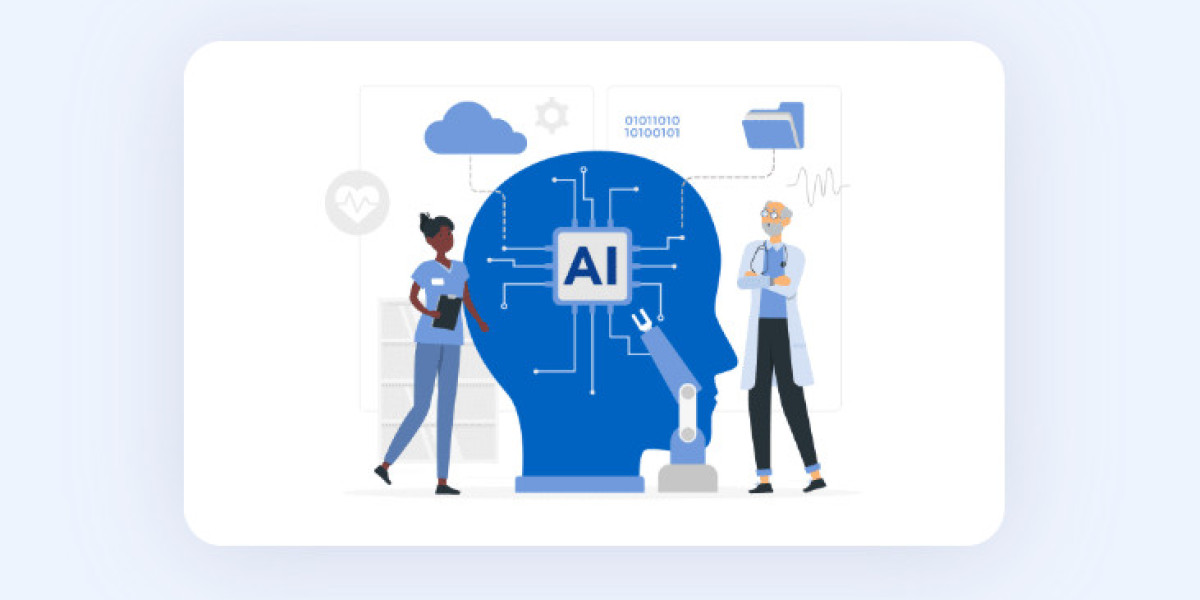The Evolution of Clinical Decision Support
Historically, clinical decision support has been an integral part of healthcare, but its effectiveness has been limited by the manual processes involved in gathering and analyzing data. Healthcare professionals would rely on their clinical knowledge, intuition, and a limited amount of available data to make decisions. While this approach has worked to a certain extent, it is prone to human error, biases, and limitations in knowledge.
With the advent of electronic health records (EHR) and the subsequent rise of data-driven healthcare, clinical decision support has become increasingly complex and powerful. The sheer volume of patient data generated daily is staggering. However, it is not just the quantity of data that matters, but also how it is processed and utilized. AI is transforming clinical decision support by processing this vast data pool and delivering actionable insights that support clinical decision-making in real time.
What is Clinical Decision Support?
Clinical decision support systems (CDSS) are digital tools designed to assist healthcare providers in making informed decisions about patient care. These systems use various data inputs, including patient health records, medical literature, and diagnostic tools, to provide evidence-based recommendations, alerts, and insights that can improve the quality of care.
The primary goals of CDSS include:
Enhancing decision-making: By providing healthcare professionals with real-time, data-driven insights, CDSS helps them make more informed decisions.
Reducing errors: AI-powered systems can help identify potential errors in treatment or diagnosis, preventing adverse events and improving patient safety.
Improving efficiency: By automating repetitive tasks, such as gathering and analyzing data, AI can save healthcare professionals time, allowing them to focus on more critical aspects of patient care.
How AI is Powering Clinical Decision Support
AI has significantly improved the capabilities of CDSS, making them more accurate, efficient, and capable of handling complex data sets. Several AI technologies, including machine learning, natural language processing (NLP), and predictive analytics, are being applied in clinical decision support to improve patient care.
Machine Learning for Predictive Analytics
Machine learning (ML) algorithms are being used in CDSS to predict patient outcomes based on historical data. These algorithms can analyze patterns within a patient's medical history, as well as population-level data, to predict the likelihood of future events, such as disease progression, readmission, or adverse reactions to medications.
For example, machine learning models can analyze a patient's medical history, lab results, and demographic information to predict the likelihood of developing conditions such as heart disease, diabetes, or stroke. This enables healthcare providers to intervene early, recommend preventive measures, and tailor treatment plans based on the individual patient's risk profile.
Natural Language Processing for Unstructured Data
A significant challenge in healthcare is the vast amount of unstructured data present in patient records. Much of the valuable information in medical records is contained in free-text notes written by healthcare providers, which are difficult for traditional systems to process and analyze.
Natural language processing (NLP), a subset of AI, is being used to extract meaningful insights from unstructured text. NLP allows CDSS to process physician notes, discharge summaries, radiology reports, and other textual data to identify key information such as symptoms, diagnoses, and treatment plans. By turning this unstructured data into structured information, NLP helps healthcare providers make more accurate and informed decisions.
For example, NLP can be used to analyze a patient's medical history and detect early signs of conditions like sepsis or cancer by identifying patterns in symptoms, lab results, and clinical observations. This allows for earlier intervention and improved patient outcomes.
Data Integration for Real-Time Decision Making
AI-powered CDSS systems are capable of integrating data from a variety of sources, including EHRs, lab results, imaging systems, and even wearable devices. This integration allows healthcare professionals to access a comprehensive view of a patient's health status in real time.
By analyzing data from these various sources, AI systems can provide real-time alerts, such as flagging abnormal lab results, suggesting potential diagnoses, or recommending adjustments to treatment plans. This integration helps to reduce errors, improve decision-making, and ensure that healthcare providers have all the information they need to deliver optimal care.
Decision Support for Personalized Medicine
One of the most exciting prospects of AI-powered clinical decision support is its potential to advance personalized medicine. Personalized medicine tailors treatment plans based on an individual patient's genetic makeup, lifestyle, and other factors. AI is helping healthcare providers better understand how specific genetic variations influence disease progression and treatment responses.
For example, AI can analyze genomic data to identify mutations that may predispose a patient to certain types of cancer. This allows clinicians to select the most effective treatments based on the patient's genetic profile, resulting in more precise and targeted therapies. Personalized treatment plans can improve outcomes and reduce the risk of adverse reactions to medications.
AI in Diagnostic Support
AI is also being used to enhance diagnostic decision-making. Diagnostic support tools powered by AI can assist healthcare providers in interpreting medical imaging, such as X-rays, MRIs, and CT scans. AI algorithms can analyze images to detect anomalies, such as tumors, fractures, or lesions, with a level of accuracy comparable to or even exceeding that of human radiologists.
Moreover, AI can integrate image analysis with other patient data, such as lab results and medical history, to provide a more comprehensive diagnostic picture. This helps healthcare providers make more accurate diagnoses and recommend appropriate treatment options, leading to improved patient outcomes.
Key Healthcare AI Use Cases
The healthcare industry is seeing widespread adoption of AI technologies across various domains. Some notable healthcare AI use cases in clinical decision support include:
1. Early Detection of Disease
AI can be used to detect diseases at an early stage, even before symptoms appear. Machine learning models trained on large datasets of medical records and diagnostic images can identify subtle patterns that may indicate the onset of a disease. This allows for early intervention and more effective treatment.
For example, AI algorithms are being used to detect early signs of cancer, such as lung cancer and breast cancer, by analyzing medical imaging data. Early detection of cancer significantly increases the chances of successful treatment and patient survival.
2. Predicting Patient Outcomes
AI-powered CDSS can predict patient outcomes, such as the likelihood of complications, hospital readmission, or recovery time. By analyzing historical patient data, AI systems can identify risk factors and suggest appropriate interventions to improve outcomes.
In critical care settings, AI systems can predict the risk of sepsis or organ failure by continuously monitoring patient vital signs, lab results, and other relevant data. These predictions enable healthcare providers to intervene early and provide timely treatment.
3. Medication Management
AI is helping healthcare providers manage medications more effectively. AI-powered systems can suggest optimal drug dosages based on a patient's specific characteristics, such as age, weight, and kidney function. This personalized approach reduces the risk of adverse drug reactions and improves patient safety.
Moreover, AI systems can monitor drug interactions, alerting healthcare providers to potential issues that could harm patients. This can be particularly useful in polypharmacy situations, where patients take multiple medications, increasing the risk of harmful drug interactions.
4. Clinical Trial Matching
AI is also playing a significant role in clinical trial recruitment and matching. By analyzing patient data, AI systems can identify individuals who are eligible for clinical trials based on specific criteria, such as their medical history, genetic makeup, and current health status.
This streamlines the process of enrolling patients in clinical trials, ensuring that the right patients are matched with the appropriate studies. AI-driven clinical trial matching can accelerate the development of new treatments and improve the efficiency of clinical research.
Challenges and Considerations in AI-Powered Clinical Decision Support
While AI offers tremendous potential in clinical decision support, its implementation is not without challenges. Some of the key considerations and challenges include:
Data Privacy and Security: The use of AI in healthcare requires access to sensitive patient data. Ensuring data privacy and security is critical to maintaining patient trust and complying with regulations such as HIPAA.
Bias and Fairness: AI systems are only as good as the data they are trained on. If the data is biased or unrepresentative, AI systems may produce inaccurate or unfair recommendations. It is essential to ensure that AI models are trained on diverse and representative datasets to mitigate bias.
Integration with Existing Systems: Integrating AI-powered CDSS with existing healthcare systems, such as EHRs and lab systems, can be complex and time-consuming. Interoperability issues need to be addressed to ensure seamless data flow and effective decision support.
Regulatory Approval: AI-powered clinical decision support systems must undergo rigorous testing and validation before being adopted in clinical practice. Healthcare organizations must work with regulatory bodies to ensure that these systems meet the necessary standards for safety and efficacy.
Conclusion
AI is transforming clinical decision support by providing healthcare professionals with the tools they need to make data-driven, evidence-based decisions. Through predictive analytics, natural language processing, and real-time data integration, AI is helping to improve patient care, reduce errors, and enhance the efficiency of healthcare systems.
As AI technologies continue to evolve, their potential in clinical decision support will only increase. However, to fully realize the benefits of AI in healthcare, it is essential to address challenges such as data privacy, bias, and integration with existing systems. By overcoming these obstacles, healthcare organizations can harness the power of AI to make better decisions, deliver more personalized care, and ultimately improve patient outcomes.
Incorporating AI into clinical decision support is not just a trend, but a transformative shift in healthcare. It holds the promise of a future where clinical decisions are powered by data, leading to better, more informed choices for patients worldwide.






